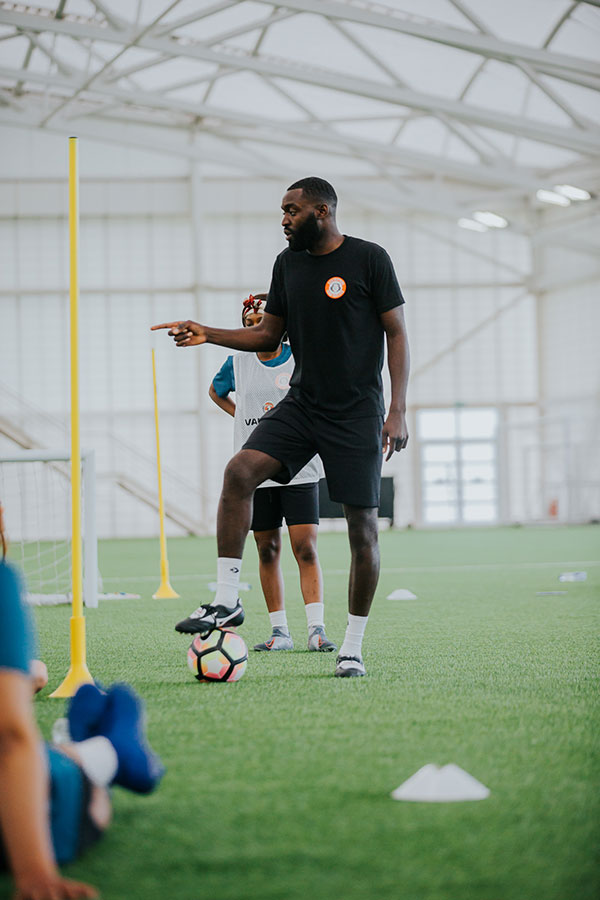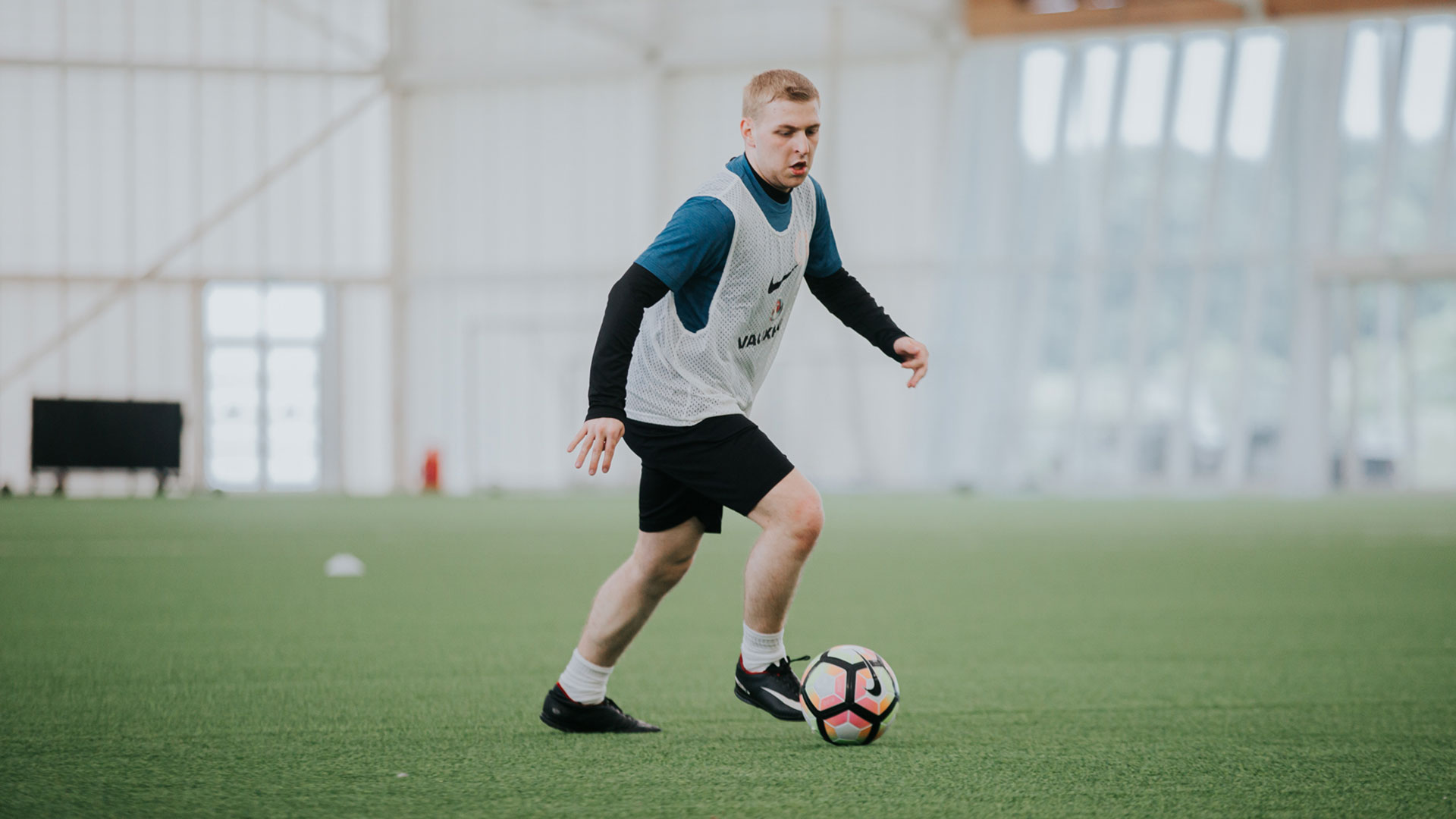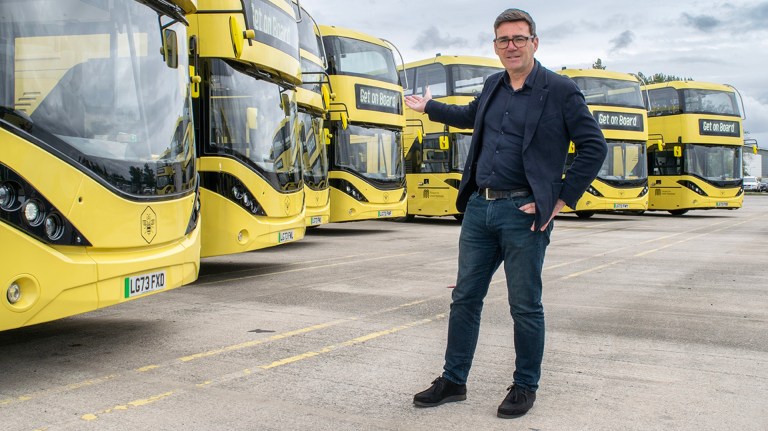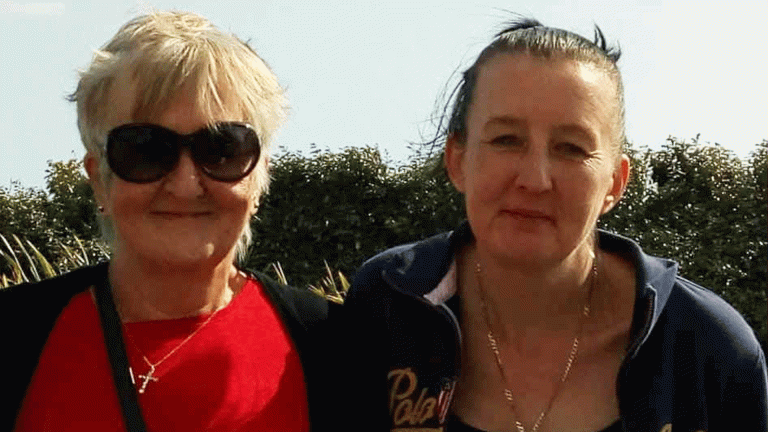Candidates take on eight-week workshops and football courses at clubs like Arsenal and Chelsea in order to take part. And similar courses at Fulham, Derby County and Southampton feed into the system too.
Team England coach Jack Badu also runs sessions at the two London Premier League giants and he insists that the clubs’ input is priceless.
“A lot of people see football clubs as something that is far removed from the community and those community foundations are doing fantastic work,” says Jack. “The key thing is that it is great work but the strength of the badge and that identity in the community make a huge difference.”
That has certainly been the case for 18-year-old Thomas from Leytonstone in East London.
He is living in supported housing provided by Centrepoint but has been given the opportunity to work and learn at Arsenal, the team he has supported since he was a boy.
Motivating factors don’t get much bigger than that, reckons Jack.
Advertising helps fund Big Issue’s mission to end poverty
“Thomas has been an Arsenal fan all of his life – he’s watched them on TV and lived in and around the area – to be part of that bigger club is fantastic for him,” he tells The Big Issue. “To go to the stadium, attend workshops, meet players and staff and wear the shirt is massively building on the confidence that he already has and gives him the ability to say that, ‘If I can do this then there is so much more that I can do.'”
And while Thomas works on taking the lessons he has learned from the programme and uses them to craft a career in coaching – he is also studying for his coaching badges at Queens Park Rangers – turning out for his country isn’t a bad bonus.
“It’s a real honour to represent England, it’s something that I have always dreamt of doing,” he says. “I’ve always dreamt of scoring for England. Not a lot of people get the opportunity to pull on an England shirt and say that they have played in a World Cup.”
This year eight men and eight women are on the programme, down from 20 each last year when there were three tournaments on the calendar as opposed to one in 2019.
All 16 players headed to St George’s Park near Burton-upon-Trent to prepare for Cardiff – just like the larger Three Lions outfits do.
There is also a crucial opportunity for advancement on the road to education or work.
Advertising helps fund Big Issue’s mission to end poverty
Londoner Shakeelah, 21, was living in a Centrepoint hostel when she met Jack. Last year she went to Mexico to represent England at the Homeless World Cup. This year she will be heading to Cardiff as the team’s assistant coach and welfare officer.
“It was crazy to go to Mexico. It was unbelievable, it was a dream come true,” she says. “When you’re younger, you dream of being a footballer and travelling the world and it came true. We met people from different backgrounds and different walks of life and got to play the game we all love. It was amazing really.”
Shakeelah, too, has had her eyes opened to a coaching career path following her Homeless World Cup experience.
But perhaps her most important message for the class of 2019 is not to worry about surpassing the semi-final hoodoo that has halted both men’s and women’s elite teams in successive summers.
“Last year I felt there was a lot of pressure on us because we all wanted to go out there and win but it is not really about the winning,” she says. “It’s about the taking part and grabbing what you can from the experience.”
Advertising helps fund Big Issue’s mission to end poverty
Images: Centrepoint










